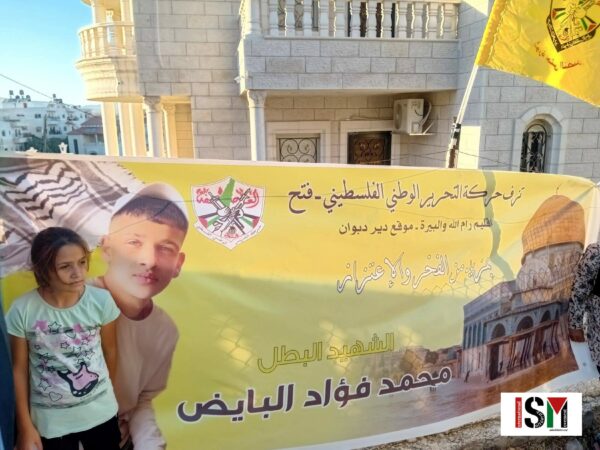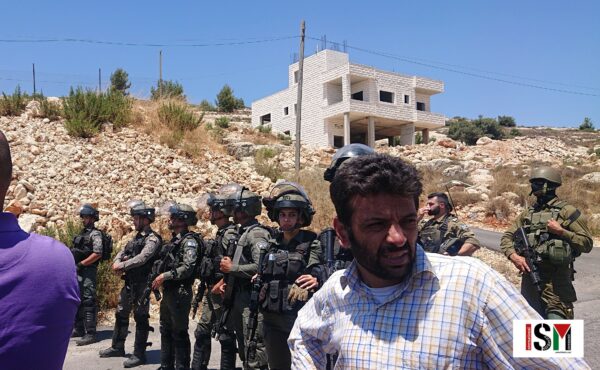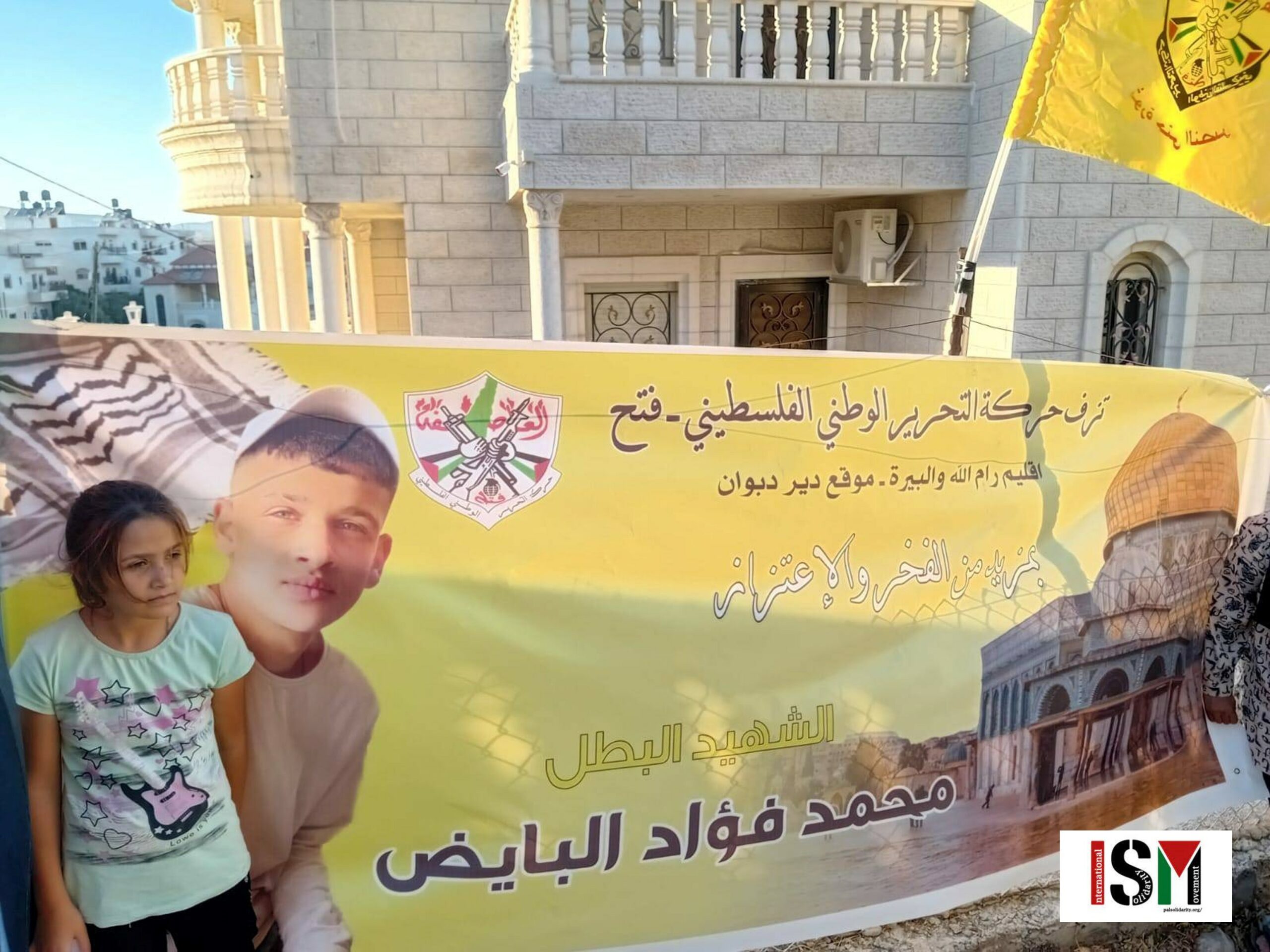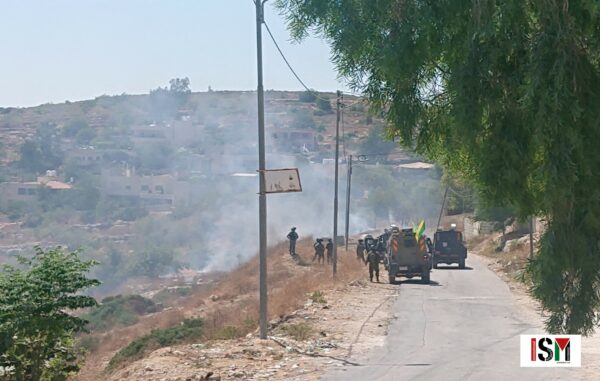
On Friday 23rd July, Israeli occupation forces fatally shot Mohammed Fouad Atta Bayyed, 17, at a demonstration in Um Safa, a village north of Ramallah which, for the past few months, has been marked by increased settler violence and encroachment.
With at least hundreds of Dunams of land confiscated by the Israelis for the purpose of settlement construction, the village faces similar threats to many rural Palestinian communities. With the vast majority of the village located inside area C—under full Israeli civil and military control—both formal and informal incursions by occupation forces are common.
However, marked by the establishment of a new outpost in late June, the village has seen violence escalate. Settler violence and encroachment has increased, with houses and fields being burned, rocks thrown, and shooting: the outpost was only dismantled on July 14th, after demonstrations were met with violence, and ultimately the killing of Abdul Jawad Hamdan Saleh, 24.
It is in this context that Mohammed Fouad Atta Bayyed, just two weeks after Abdul Jawad Hamdan Saleh, was killed at a peaceful demonstration against settlement expansion. After Friday prayers, an orderly march was held that led out of town, before being stopped by the Israeli army and Border Police. Palestinian, international, and Israeli activists chanted ‘Settlers out’, and ‘Umsafa is Arab’. Soldiers, some in balaclavas, pointed their guns at demonstrators: as the crowd returned to the village, they started firing rubber-coated steel bullets and tear gas at demonstrators.
As the crowd dispersed, young Palestinians responded to this aggression with the throwing of rocks, and the creation of small road blocks. After the army called in reinforcements, the mood remained relatively calm: despite the rock throwing and tear gas, there were no physical confrontations between the army, police, and Palestinians, nor were there arrests.
This changed when the military began to use live fire against demonstrators and journalists, culminating with a sniper shooting Fouad Atta Bayyed in the back of the head at a distance of forty metres from an occupied house. A second Palestinian youth was shot in the stomach who, while in hospital, is out of critical condition. The situation was such that an ambulance did not take either of the boys to hospital, and they had to be driven by car.

After the shootings, and the pronouncement of Fouad Atta Bayyed’s death, the Israeli army stayed in Um Safa for several hours, blocking traffic in and out of town, and preventing the movement of individuals and mourners down the main road through the village.
The death of Fouad Atta Bayyed comes only 25 days after the death of his grandfather, who despite an autopsy not being performed for religious reasons, died in hospital after exposure to teargas, and three years after the death of his father. Born in Jalazone refugee camp, where he is buried next to his father, Mohammed, who worked on a farm and hoped to return to education, is survived by his sisters and mother, the latter of whom told ISM interviewers that she calls for “increased protective presence” in Palestinian communities, and for “the violence to end so that children can live in peace”, and cases such as Mohammed’s are not repeated.


